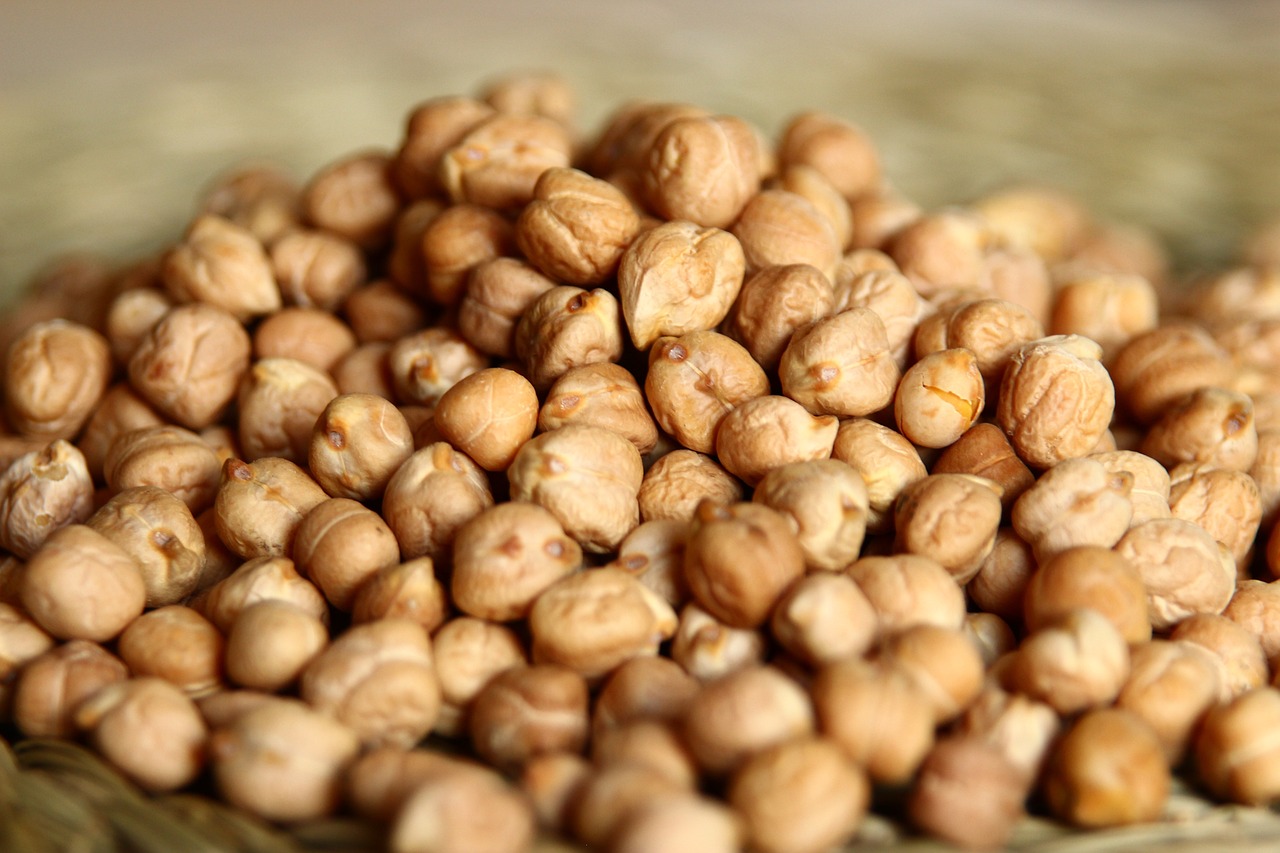
Chickpea (chole) belongs to the family of legumes and an important food plant in India. These are rich in fibers, protein and also a great source of Iron, phosphorous and folic acid. They are also known by a another name garbanzo bean or Bengal gram. they are small white or radish in color.
They are affordable and highly nutritious, they may aid weight management and promote aspects of health.
Nutritional value of Chickpeas

Chickpeas are rich in vitamins and minerals and contains a decent amount of protein and fiber. Nutritional value of chickpeas as per 100g serving is given below:
- Calories – 364 g
- Protein – 19 g
- Fats – 6 g
- Carbs – 61 g
- Fiber – 17 g
- Sodium – 24 mg
- Potassium – 875 mg
- Saturated fats – 0.7 g
- Vitamin C – 6 % of daily value.
- Iron – 34 % of daily value.
- Vitamin B6 – 25 % of daily value.
- Magnesium – 28 % of daily value.
- Calcium – 10 % of daily value.
Benefits of Consuming Chickpea

They are rich in nutrients and minerals and gives you several benefits. Some of such benefits of chickpeas are following :
Provide Plant Protein :
Studies suggests that the protein found in chickpea has a better quality than other types of legumes. It contains all of the essential amino acids except methionine. It is a great source of plant based protein, and best food for a person who doesn’t eat meat because it’s per 100g serving contains 19g of good quality protein which is 38% of daily value of protein for your body. The protein in such legumes plays an important role in muscle strength, weight management and keeps your appetite under control.
Helps in Digestion :
They are high in fibers, which is beneficial for your digestion. It supports bowel movements and increase the growth of healthy bacteria and prevent the growth of unhealthy bacteria in you gut. The fiber in chickpea is mostly soluble fiber which helps or promotes digestive system for healthy or easily digestion.
Helps in Weight Management :
They may aid weight management due to their filling effect. It contains both soluble and insoluble fiber, which make slowed the rate at which digested food travel through small intestine. This helps people to feel full for longer. Feeling fuller for longer can help to reduce your appetite and control the calories intake of a person.
Support Brain health :
It also support your mental health and brain functioning. It is a great source of Choline. A cup of chickpea contains 70.2mg of choline. Choline plays an important role in brain functions like mood, learning and memory, muscle control etc.
Reduce Cholesterol level :
It helps in cholesterol level management in your blood. It is beneficial for cholesterol level in your blood. Researches suggests that consuming chickpeas has a positive impact on your cholesterol level of your blood. Consuming such legumes helps in reducing the rate of bad cholesterol levels (low density lipoprotein) (LDL) in your blood and also helps in increasing the rate of good cholesterol levels (High density lipoprotein) (HDL) in your blood.
Reduce risk of Cancer :
Chickpeas helps in lowering the risk of Cancer. they react as an antioxidant. It contains a compound (antioxidant) named Selenium. A cup of chickpeas contains 6.4 micrograms of Selenium. It helps to protect your body from Cancer.
Free radicals are a toxic substance, they can damage cells and leads to many health issues including Cancer. Such selenium helps in removing the free radicals from your body.
Reduce Blood pressure :
Chickpeas plays an important role in reducing or managing blood pressure in your blood. Such legumes are rich in potassium. A cup of chickpeas contains 475mg of potassium. Consuming such legumes also increase the intake or potassium in your body. Potassium helps in lowering blood pressure by removing or decreasing the rate of sodium in your body.
Reduce sodium intake can lowers blood pressure in your body.
People who have blood pressure issue like hypertension or high blood pressure should avoid the consumption of sodium and chickpea is a healthier source for such people.
Keep you Full for longer :
Chickpeas are rich in fiber and protein. Fiber and protein in such legumes helps keep your appetite under control. Fiber and protein works with each other (together) to slow the digestion process, which helps in keeping you full for longer time. Compounds present in such legumes also increase the levels of appetite reducing hormone in your body.
Side effects of consuming Chickpea

There are many benefits of consuming chickpea but it also have some side effects. some side effects of such legumes are following :
Cause Bloating :
Chickpeas contains many soluble and insoluble fibers, which helps in keeping you full for longer time But chickpeas are very difficult to digest. It also contains some indigestible compounds (sugars) that can leads to bloating or gas build up in your stomach. It is advised to not eat such legumes raw because they contains toxins and many other harmful substances which are very harmful to digest.
Risk factor for Kidneys :
Chickpea is also a risk factor for your kidneys. such legumes are a rich source of potassium and beta blocker present in such legume is responsible for the increase of potassium levels in your blood. A study reports, that having excess potassium in your body can hurt or damage your kidneys and also make other kidney issues.
Allergic issues :
Any person who have some allergic issues with some kinds of legumes like peas, lentils, lupines etc. also have allergy to chickpea as well. SO, it is advised not to eat such legumes and chickpeas also. It’s consumption can get you serious illness and many other serious allergic issue or reactions.
Conclusion
As we studied above, there are many health benefits of consuming chickpea like, it provides plant based protein, support mental health, helps in digestion, keep you full for longer, reduce cholesterol level, reduce risk of cancer etc. But it also have some side effects of consuming such legumes like, it can cause bloating, kidney issues and many allergic issues. So, it is beneficial to consume them in a limited quantity to get it’s benefits and consult to the doctor who have allergic problems to such legumes.
https://genztrendyy.com/coconut-water-its-10-natural-benefits-and-some-side-effects/


